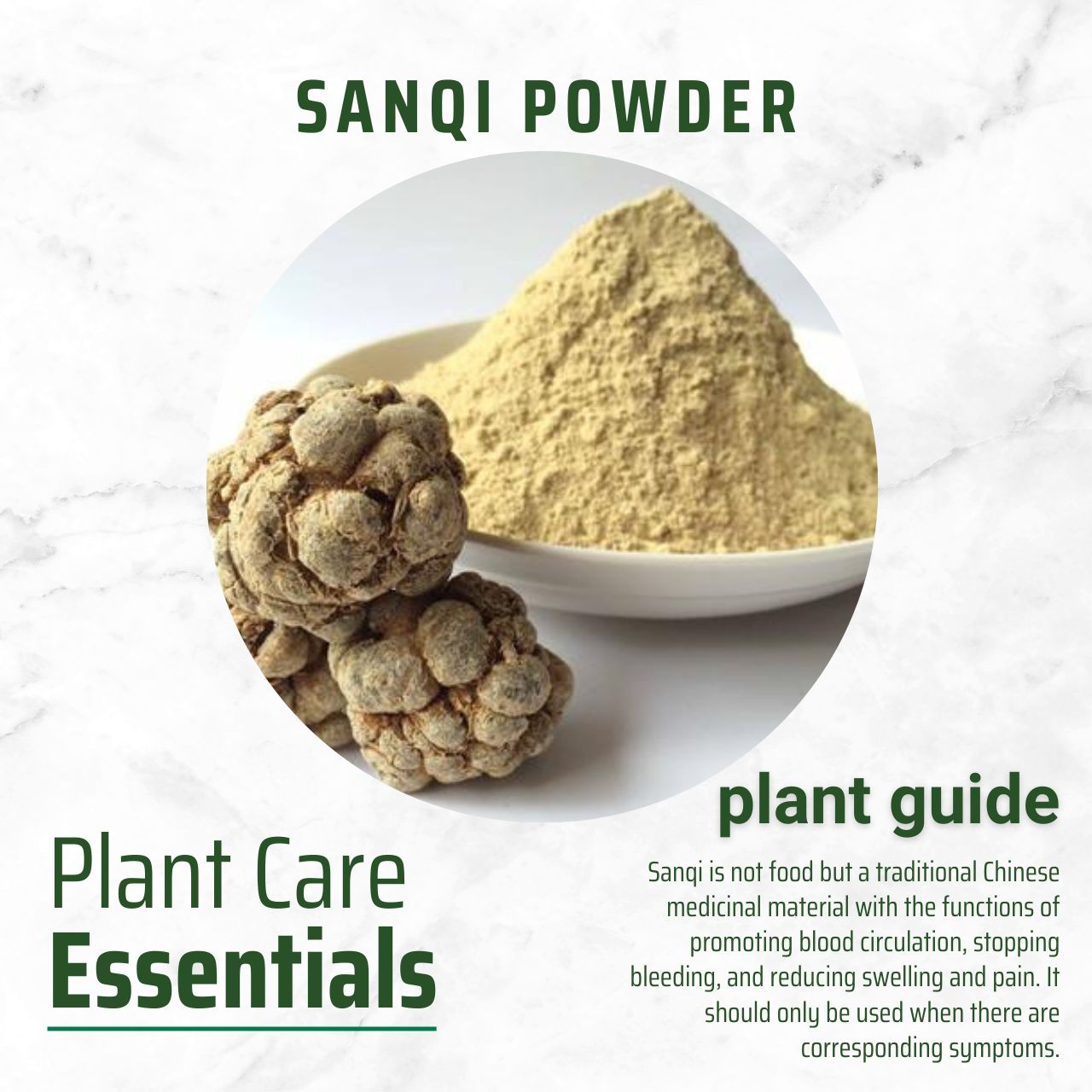Use of Sanqi Powder in Cardiovascular Diseases
With the popularization of health knowledge, traditional Chinese medicine (TCM) therapy has gained increasing popularity. “Sanqi powder” is one of the favored health products in recent years. Influenced by modern medicine’s proposition that long-term use of low-dose aspirin can prevent cardiovascular and cerebrovascular diseases, many people equate the TCM blood-activating medicine “Sanqi” with aspirin, believing that it has the same preventive effects against cardiovascular and cerebrovascular diseases as aspirin but without its adverse drug reactions.
However, “Sanqi” is a medicine, not food, and the notion of long-term use for prevention without symptoms may lead to drug toxicity.
- Long-term dual use of medicine and food can cause illness Some say that Sanqi can be used as both medicine and food, which is incorrect. Sanqi is not food but a traditional Chinese medicinal material that promotes blood circulation, stops bleeding, and reduces swelling and pain. It should only be used when there are corresponding symptoms. Sanqi, also known as Tianqi, Jinbu Huan, and Sanqi, is mainly produced in Yunnan and Guangxi provinces in China. Its root is ground into powder, which is known as Sanqi powder. Sanqi has a sweet and slightly bitter taste and a warm nature. It is usually used to treat various bleeding symptoms, such as vomiting blood, coughing blood, bloody stools, postpartum fainting due to blood loss, and external bleeding. It is more suitable for those with bleeding and blood stasis. In terms of usage, Sanqi can be taken orally to enhance its hemostatic effect, and it can also be combined with other hemostatic drugs. For traumatic bleeding, Sanqi can be applied externally to stop bleeding. Due to its blood-activating and pain-relieving effects, it can also be used for injuries with blood stasis and pain. However, using Sanqi to treat diseases by oneself or for prevention without symptoms based on others’ experiences can lead to drug abuse. There is a record in ancient books: “If there is deficiency due to overexertion and blood loss, and the yin and yang are exhausted, one should seek the source and treat the root cause. If this medicine is used, it will only worsen the harm.” If the source of blood stasis is a deficiency of qi and blood, and consumption of yin fluids, using Sanqi alone is ineffective and can easily damage the yin fluids (body fluids). In TCM, insufficient yin fluids can lead to excessive internal heat, known as “internal heat” or “internal fire.”
- Relying solely on Sanqi cannot cure cardiovascular and cerebrovascular diseases Currently, research shows that Sanqi can improve the function of the cardiovascular system, accelerate the elimination of exercise-induced fatigue, enhance physical fitness, and have anti-thrombotic and anti-aging effects on cerebral vascular system. Since Sanqi can improve the function of the cardiovascular system, can patients with cardiovascular and cerebrovascular diseases stop taking other Western medicines by taking Sanqi powder? Neither cardiovascular and cerebrovascular diseases nor blood stasis can be treated solely with Sanqi powder. Some patients with cardiovascular and cerebrovascular diseases have a state of blood stasis, and taking Sanqi powder is appropriate. The main ingredients of commonly used Chinese patent medicines such as Xuesaitong, Xuetong, and compound Xuetong are Sanqi. However, the management of cardiovascular and cerebrovascular risk factors cannot be ignored, such as controlling weight, adopting a healthy lifestyle, lowering blood pressure, regulating blood sugar, adjusting blood lipids, and reducing uric acid. These issues cannot be solved by Sanqi alone. Large doses of Sanqi can cause atrioventricular conduction block (which is a common type of arrhythmia, severe cases can lead to bradycardia and even cardio-cerebral ischemic syndrome).
- Precautions for taking Sanqi Some patients are eager to treat their illness and believe that the larger the dose of Sanqi powder, the better the effect, which is wrong. For bleeding patients, a larger dose of Sanqi powder may be used, while for blood-activating purposes, a smaller dose taken over a longer period may be more effective. In general, the common dosage for decoction of Sanqi is 3 grams to 10 grams; for powdered ingestion, the usual dosage is 1 gram to 1.5 grams. Long-term use of large doses of Sanqi may lead to adverse reactions or toxic side effects, such as nausea, vomiting, epistaxis, gingival bleeding, increased menstrual flow, and in severe cases, bradycardia or rash.
The following contraindications should be noted:
Patients with cold constipation should observe the effects of taking Sanqi. Those with weak spleen and stomach or upward rebellious stomach qi may experience symptoms such as nausea and vomiting when taking Sanqi powder alone. A few people may develop allergic drug rashes when taking Sanqi powder or Sanqi tablets, so caution is advised for those allergic to Sanqi. Patients with myocardial infarction taking oral anticoagulants should be cautious when taking Sanqi powder, and coagulation indicators should be monitored simultaneously. The main efficacy of Sanqi powder is blood-activating and hemostatic. If the patient does not have blood stasis, do not take Sanqi powder for a long time. Sanqi powder should be discontinued during menstruation to avoid excessive bleeding. Pregnant women should not take Sanqi powder to avoid disturbing fetal qi.

Comments
Post a Comment